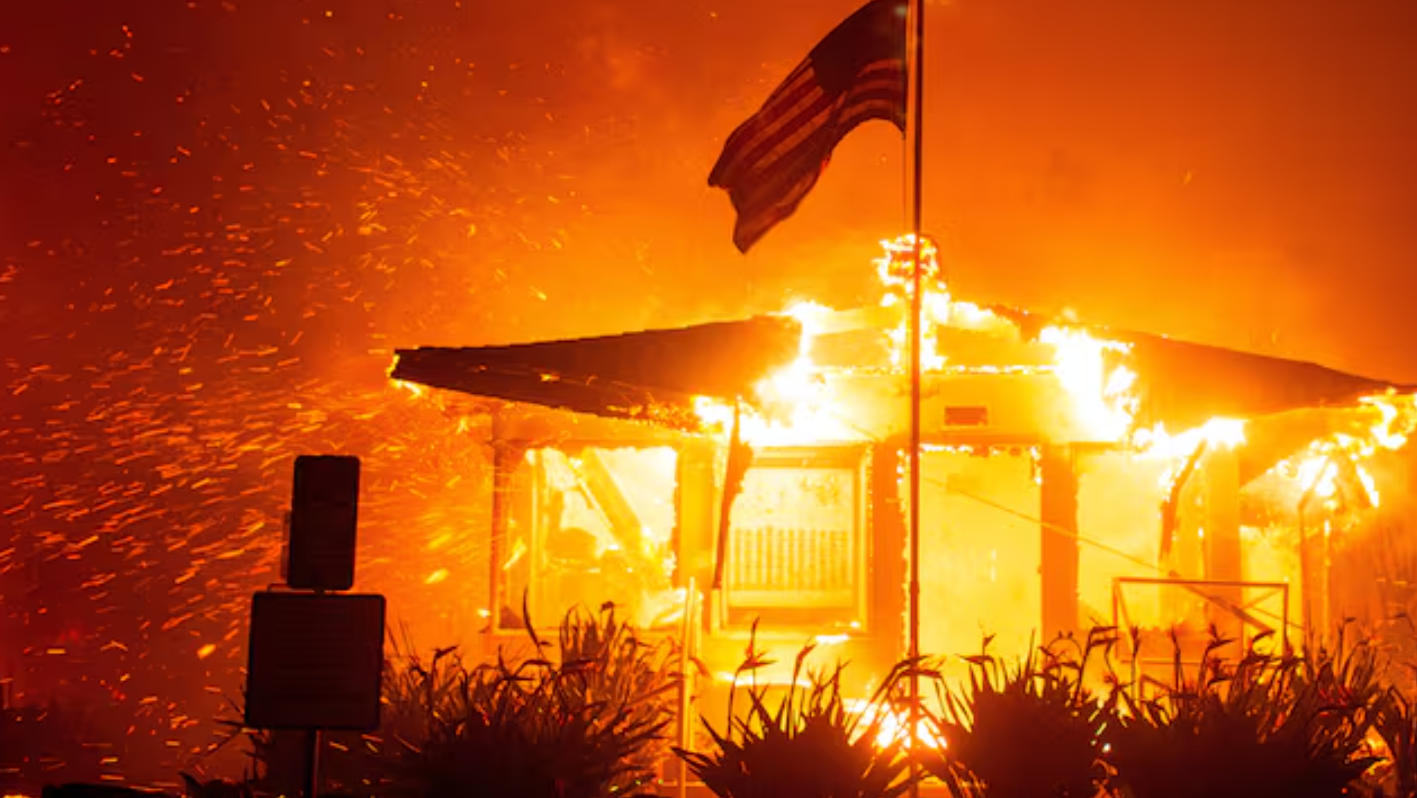
"It is hard to properly express how much was lost," said Danielle Havanas, whose home was destroyed in last week's Palisades fire. "How do you communicate the value of your deceased mom's journal from 1981 when she was pregnant with you?"
Scientists are still determining the extent to which the climate crisis exacerbated the fires, but existing research leaves little doubt about its role. UCLA climate experts estimate that global warming contributed to at least 25% of the dryness that fueled the rapid spread of the fires, creating ideal conditions for such disasters.
The fires have hit vulnerable communities particularly hard. In the Altadena neighborhood, heavily affected by the Eaton fire, Sam James shared how her grandfather's home was lost in the blaze. "The region saw many Black families begin building generational wealth for the first time, but the fire wiped out much of that progress," she said.
James emphasized the injustice of the situation, stating, "It should not continuously fall on us to address the consequences of big oil's negligence. They must take responsibility for the harm they've caused, pay reparations to the affected communities, and take immediate steps to mitigate further damage."
Mounting Evidence Against Big Oil
There is growing evidence that oil companies have long known their products significantly contribute to climate change but continued to promote them while downplaying the risks. Public outrage has fueled numerous lawsuits and legislative efforts aimed at holding these companies accountable.
California, along with other states and cities, has filed litigation against oil companies, accusing them of spreading climate disinformation and demanding financial compensation for damages. States like Vermont and New York have passed "climate superfund" bills requiring major oil companies to contribute to climate action funds.
California lawmakers plan to reintroduce a similar bill in the coming days. Clara Vondrich, senior policy counsel at the non-profit Public Citizen, emphasized the urgency of this legislation, stating, "We're already paying for big oil's climate destruction—not just with money, but with our lives. That's why we need our own climate superfund bill."
Calls for Criminal Accountability
Beyond legislative action, some advocates are pushing for criminal charges against oil companies for misleading the public and delaying climate solutions. "Fossil fuel CEOs are responsible for the destruction happening in Los Angeles," said Simon Aron, an 18-year-old protester with the youth-led Sunrise Movement.
Public Citizen director Aaron Regunberg highlighted the stakes amid former President Donald Trump's second term, noting, "Donald Trump has made very clear that his allegiance is to big oil." Regunberg stressed the importance of local action to counter federal inaction.
The Sunrise Movement recently held a protest at a Phillips 66 oil facility, symbolizing growing grassroots pressure on the fossil fuel industry. "This devastation isn't inevitable," said Aron. "It's the result of decisions made by corporations prioritizing profit over people and the planet."
As Los Angeles continues to grapple with the devastation of its wildfires, survivors and activists are united in their demand for accountability from the industry they say bears significant responsibility for the climate crisis. The fight to hold big oil accountable, they insist, is not just about justice for past damages but a necessary step to prevent even greater harm in the future.